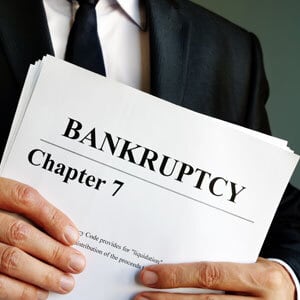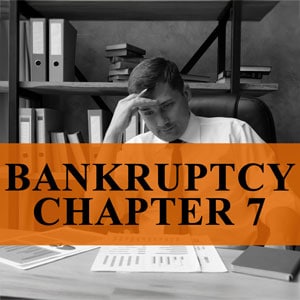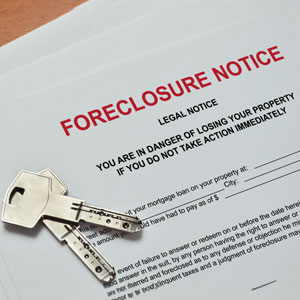
In this article, you will discover: The process and regulations regarding short sale of a home Common mistakes to avoid in a short sale How an attorney handles resistance from a lender during short sale What Does The Short Sale Process Entail In Maryland? In a short sale, you hire a real estate agent or broker to list the property and try to get as high an offer as possible. This process can help you avoid foreclosure if you owe more on your mortgage than your home is worth and need to sell quickly. A notice of short sale will need to be submitted with your package. The package you submit is the same package you would submit for a loan modification, and once approved by the original mortgage lender, you are released from your mortgage debt. Can I Remain In My Home During The Short Sale? Yes, You can still live in your home during the short sale and remain there until your home is sold. [CTAByline] What Common Mistakes Should I Avoid In A Short Sale? Real estate agents list the property for…Read More

In this article, you’ll discover: The reasons why you might apply for a loan modification. How to meet the loan modification application criteria. The biggest challenges clients face in the loan modification process. What Are Common Reasons To Apply For A Loan Modification? Typically, you would apply for a loan modification if you are behind on your mortgage payments. You are looking for a reduced payment amount, interest rate or a longer term to repay your mortgage. Sometimes, the mortgage company will do some or all of those things. They'll consider the status of payments when the loan modification was approved and then factor in the payments that you’ve missed. They'll then put them either at the end of the loan or else recapitalize the loan and include that amount in the mortgage itself. The advantage of the loan modification is that, through that process, you can do things you can't do in bankruptcy. The downside is that a loan modification is not always approved. Loan modification can be a gamble, but if it works, it can do a lot to help you as a…Read More

In this article, you will discover: The amount of debt you should have to consider bankruptcy. The effect of filing for bankruptcy on your credit score. The effect of bankruptcy on home loans and mortgages. How Much Debt Should I Have To Consider Bankruptcy In Maryland? The average cost to file bankruptcy starts at about $2,000 for most cases and goes up depending on the type of case. It usually only makes sense to file bankruptcy if you have a minimum of $5,000 to $10,000 in debt. What Are The Alternatives To Bankruptcy? A consultation with an attorney should cover what bankruptcy could look like and alternatives like debt settlement. If you have an issue paying your mortgage and are in foreclosure, sometimes you can consider loan modification or foreclosure mediation with the lender. If you want to let the property, go, you can discuss a short sale or consider a regular sale of your property. There are other options, but it's best to discuss the situation with a bankruptcy attorney who can tell you your options and help you choose the right solution for…Read More

Facing the possibility of losing your home is overwhelming, whether it’s after years of steady payments or soon after securing your mortgage. Sudden financial setbacks like job loss or unexpected medical bills can quickly disrupt your ability to stay on track. This guide is here to help you take action with clarity and confidence. Keep reading to learn more about: The best first step you can take, that too few people know about. (Hint: it is not asking the Maryland government for help.) How long you have to take action, and the documents you will need to gather. How an attorney with foreclosure and bankruptcy experience can help you. What Are The First Steps To Take If I Realize I Cannot Afford My Mortgage Payments? First, take a breath. Stress and panic can cloud your judgment. Double-check your finances to confirm if the situation is as dire as it feels. If it is, don’t hesitate—call an attorney experienced in foreclosure and bankruptcy law. There are solutions available, and a knowledgeable attorney will help you identify the best option tailored to your situation. Are There Any…Read More

In this article, you will discover: The Means Test’s role in qualifying for Chapter 7 bankruptcy. The documentation required for the Means Test. Your legal options should you fail the Means Test, and how an attorney can help. What Is The Means Test, And How Is It Connected To Bankruptcy? The Means Test is a form you must complete to determine if you qualify for Chapter 7 bankruptcy. It looks at your income over the six months before filing for bankruptcy. It compares that income against some expenses established by the Internal Revenue Service and some of your actual expenses. The Means Test also determines whether there is a presumption that filing a Chapter 7 is abusive. Is The Means Test Mandatory In Maryland? Yes. In Maryland and nationally, you must fill out that Means Test form to file a Chapter 7 bankruptcy; it's a requirement. What Documents Are Required For The Means Test? You will need to supply income documentation for the past six months. If you are self-employed, you will typically need your operating reports for that period. If you have any other…Read More

Bankruptcy, especially Chapter 7 liquidation, is often misunderstood and carries a heavy stigma. Misconceptions can lead to confusion and missed opportunities for relief. This article will shed light on five widespread Chapter 7 bankruptcy myths, particularly those affecting Maryland residents. Keep reading to learn more about: Why almost anyone can benefit from bankruptcy depending on their circumstances. Why you may get to keep some of your belongings, and will still be able to buy a home despite bankruptcy. How bankruptcy in Maryland will affect you and your wife’s credit. Myth #1: Is Filing For Bankruptcy Only For People With High Debt? False. You don’t need to be drowning in hundreds of thousands of dollars of debt to consider bankruptcy. The key is whether the benefits of filing outweigh the costs. For example, if filing will cost $2,000, it wouldn’t make sense for $1,000 of debt. But if you have $8,000 to $10,000 in debt and can get most of it wiped out? That’s a different story. Clients of ours have ranged from having $6,000 to millions in debt—proving that bankruptcy isn’t just for extreme cases.…Read More

If you’re one of the millions of Americans burdened by student loans, you know how stressful managing those payments can be. When life throws more financial challenges your way—like unexpected debts or job loss—it can feel overwhelming, leading you to consider bankruptcy as a potential solution. However, when it comes to student loans, the situation is more complex. This guide walks you through what you need to know about bankruptcy and student loan debt, including: Why most student loans are not usually wiped out by bankruptcy. How different types of bankruptcy affect student loan repayment. What happens to co-signers if you declare bankruptcy. Can I Include Student Loan Debts In A Bankruptcy Filing? Yes, you can list your student loans when you file for bankruptcy. All debts, including student loans, must be disclosed in your filing, even if those loans might not be dischargeable (meaning they might not be eliminated through the bankruptcy process). Are My Student Debts Dischargeable Through Bankruptcy? The dischargeability of student loans in bankruptcy depends on the type of loan—federal or private—and the type of bankruptcy you file. Unfortunately, most student…Read More

Experiencing a short sale can be daunting and may feel like the end of your homeownership journey. However, with strategic planning and proactive measures, recovery is within reach. This guide covers essential advice to help you move forward, including: Strategies for qualifying for a mortgage after a short sale impacts your credit score. Steps to prepare for future homeownership and rebuild credit. Common pitfalls to avoid during and after a short sale. What Is A Short Sale? A short sale occurs when a property is sold for less than the outstanding mortgage/ lien balance, typically as an alternative to foreclosure and with the approval of all lien holders. How Will A Short Sale Impact My Credit Score? A short sale can hurt your credit score because it’s seen as settling a debt for less than the full amount. Here’s why: Missed Payments: If you’ve fallen behind on your mortgage or related payments, it negatively impacts your credit score. Debt Settlement: The difference between your mortgage/ lien balance and the sale price—known as forgiven debt—further impacts your score and it could result in tax implications as…Read More

My understanding is that the lender is basically just going to pick up where they left off. It’s like time froze for a year and a half, and now, we are resuming normal procedures. I don’t think that courts have dismissed these cases due to failure to prosecute because they’ve been tied up. The judges know that the lenders are not free to move along with these cases unless they are in a limited situation involving a private lender or vacant property. Otherwise, a lot of these that were at various stages are just going to pick up from the point where they left off. If they hadn’t been filed, there is a process that has to happen before a foreclosure case can be filed in Maryland if it’s an owner-occupied property, so the lenders will most likely begin that process. There is probably going to be a backlog, so it’s hard to say how long it will take for the floodgates to fully open, as they say. I’ve heard that certain lenders aren’t going to be doing foreclosures until next year. Even though the…Read More

The process varies by state. If you apply for a forbearance by the deadline, which is currently the end of September of this year, the lender won’t be able to foreclose on you while you are in a forbearance plan. However, if people don’t act, that could start the clock running on the foreclosure. In Maryland, the foreclosure process takes about four to six months, depending on whether the homeowner still lives in the property and whether they’ve requested a mediation. Foreclosure is not a process where you miss your payment and then are out of your house the next day. There are some things that have to happen, and there are ways to stop that process by filing bankruptcy or, in some cases, applying for assistance. Homeowners who’ve applied for assistance in a timely manner have some protection in place, and their foreclosure process can be put on hold. Do Banks Want To Put Delinquent Homeowners In Foreclosure At The Moment? I’ve stopped trying to figure out what banks want to do because they never seem to apply the same logic. In many instances,…Read More